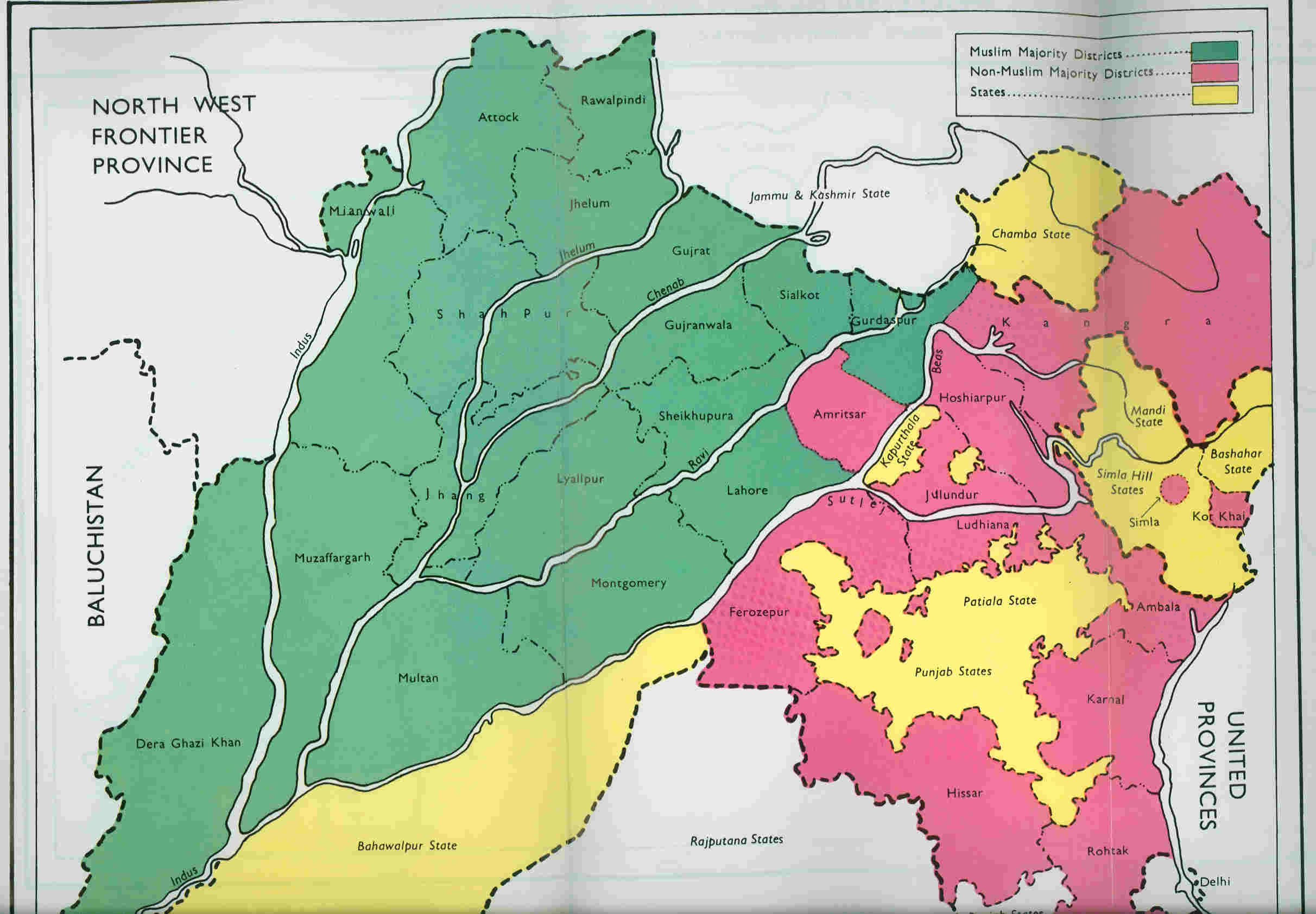|
Shujaat Hussain
Chaudhry Shujaat Hussain (born 27 January 1946) is a senior Pakistani politician who previously served as 16th prime minister of Pakistan. Hussain is the Party chair, party president of the Pakistan Muslim League (Q), PML(Q) since 2003. Hailing from the business-industrialist Chaudhry family from the Punjab, Pakistan, Punjab province of Pakistan, Hussain graduated from the Forman Christian College University, FC College University and the University of Punjab, Punjab University. After his graduation, Hussain subsequently joined the family business comprising large numbers of industries, textiles, agricultural farms, sugar and flour mills. He successfully contested in the non-partisan 1985 Pakistani general election, 1985 elections and was appointed as Cabinet of Pakistan, minister of Ministry of Industry (Pakistan), industry in the government of Prime minister Muhammad Khan Junejo, Muhammad Junejo, lasting until 1988. Hussain became a leader and influential conservative figure in ... [...More Info...] [...Related Items...] OR: [Wikipedia] [Google] [Baidu] |
Prime Minister Of Pakistan
The prime minister of Pakistan (, Roman Urdu, romanized: Wazīr ē Aʿẓam , ) is the head of government of the Islamic Republic of Pakistan. Executive authority is vested in the prime minister and his chosen Cabinet of Pakistan, cabinet, despite the president of Pakistan serving as the nominal head of executive. The prime minister is often the leader of the party or the coalition with a majority in the lower house of the Parliament of Pakistan, the National Assembly of Pakistan, National Assembly where he serves as '' Leader of the House''. Prime minister holds office by virtue of their ability to Motion of no-confidence, command the confidence of the National Assembly of Pakistan, National Assembly. The prime minister is designated as the "chief executive of the Islamic Republic". Pakistan's prime minister leads the Executive (government), executive branch of the Government of Pakistan, federal government, oversees the Economy of Pakistan, state economy, leads the National As ... [...More Info...] [...Related Items...] OR: [Wikipedia] [Google] [Baidu] |
Ministry Of Information, Broadcasting And National Heritage (Pakistan)
The Ministry of Information & Broadcasting ()(abbreviated as MoIB) is a Cabinet-level ministry of Government of Pakistan, responsible to release government information, media galleries, public domain and government unclassified non-scientific data to the public and international communities. The MoIB has jurisdiction for administrating the rules and regulations and laws relating to information, broadcasting and the press media in Pakistan. Autonomous/semi-autonomous bodies Shalimar Recording & Broadcasting Company Ltd Shalimar Recording & Broadcasting Company Ltd. (SRBC), is an unlisted public limited Company, incorporated in 1974. Currently it is a recording and broadcasting company with 20 ATV stations in the urban centers of Pakistan. It was originally perceived and formed as a recording company in 1974 with an objective to protect the interest of the Artists, poets, composers and others who were being deprived of their legitimate earnings and with the aim to release the reco ... [...More Info...] [...Related Items...] OR: [Wikipedia] [Google] [Baidu] |
Pakistan Muslim League
The Pakistan Muslim League (; known as PML), is the name of several different Pakistani political parties that have dominated the centre-right platform in the country. The ''Muslim League'' (the original successor of the All-India Muslim League) was the party of Pakistan's founders. However, it faced multiple fractures soon after Pakistan gained independence in 1947. It vanished in the 1970s. Its revival began in the mid-1980s and today several parties in Pakistan are named Muslim League. History First phase (1962–1969) The first "Pakistan" Muslim League was founded by President Ayub Khan in 1962 as a successor to the original Muslim League. Just a short period after its foundation, the party broke into two factions: Convention Muslim League that supported the President and the new Constitution, and the Council Muslim League, that opposed the new Constitution, denouncing it as undemocratic that made the Presidency an autocratic position. Following President Ayub's r ... [...More Info...] [...Related Items...] OR: [Wikipedia] [Google] [Baidu] |
Islami Jamhoori Ittehad
The Islami Jamhuri Ittihad (IJI) was a right-wing conservative alliance formed in September 1988 to oppose the democratic socialist Pakistan Peoples Party in elections that year. The alliance comprised nine parties, of which the major components were the Pakistan Muslim League (PML), National Peoples Party (NPP) and Jamaat-e-Islami (JI), with PML accounting for 80% of the IJI's electoral candidates. The Inter-Services Intelligence (ISI) agency, under director Hamid Gul, had a major role in forming the right-of-centre political alliance. Care had been taken to ensure that the alliance comprised nine parties to generate comparison with the nine-party Pakistan National Alliance (PNA) that had campaigned against PPP in 1977. The IJI was considered a Zia ul-Haq loyalist alliance. The head of the party was Ghulam Mustafa Jatoi, but its most resourceful leader was Nawaz Sharif, a young industrialist whom Zia ul-Haq had appointed chief minister of Punjab. Sharif was vying for co ... [...More Info...] [...Related Items...] OR: [Wikipedia] [Google] [Baidu] |
Pakistan Muslim League (N)
The Pakistan Muslim League (N) or (PML(N)) is a Centre-right politics, centre-right, Conservatism in Pakistan, conservative political party in Pakistan. It is currently the third-largest party in the Senate of Pakistan, Senate and the largest in the National Assembly of Pakistan, National Assembly. The party was founded in 1993, when a number of prominent Conservatism in Pakistan, conservative politicians in the country joined hands after the dissolution of Islami Jamhoori Ittehad, Islamic Democratic Alliance, under the leadership of former Prime Minister of Pakistan, Prime Minister Nawaz Sharif. The Party platform, party's platform is generally Conservatism in Pakistan, conservative, which involves supporting free markets, deregulation, Tax cut, lower taxes and Privatization, private ownership. Although the party initially supported social conservatism, in recent years, the party's political ideology and platform has become more Liberal conservatism, liberally conservative. A ... [...More Info...] [...Related Items...] OR: [Wikipedia] [Google] [Baidu] |
Lahore
Lahore ( ; ; ) is the capital and largest city of the Administrative units of Pakistan, Pakistani province of Punjab, Pakistan, Punjab. It is the List of cities in Pakistan by population, second-largest city in Pakistan, after Karachi, and 27th List of largest cities, largest in the world, with a population of over 14 million. Lahore is one of Pakistan's major industrial, educational and economic hubs. It has been the historic capital and cultural center of the wider Punjab region, and is one of Pakistan's most Social liberalism, socially liberal, Progressivism, progressive, and Cosmopolitanism, cosmopolitan cities. Origins of Lahore, Lahore's origin dates back to antiquity. The city has been inhabited for around two millennia, although it rose to prominence in the late 10th century with the establishment of the Walled City of Lahore, Walled City, its fortified interior. Lahore served as the capital of several empires during the medieval era, including the Hindu Shahis, Gha ... [...More Info...] [...Related Items...] OR: [Wikipedia] [Google] [Baidu] |
Chaudhry Zahoor Elahi
Chaudhry Zahoor Elahi (,1917 – 25 September 1981) was a Pakistani politician from Gujrat, Punjab, British India (now Gujrat, Pakistan). A Jat of the Warraich clan, Elahi began his career as a police constable. After the creation of Pakistan in 1947, he retired from the police force and joined his elder brother, Chaudhry Manzoor Elahi, in a textile engineering venture. The brothers jointly purchased and operated a textile mill in Gujrat. Elahi entered local politics in the 1950s. During Ayub Khan's rule, he became a political opponent of Nawab of Kalabagh Amir Mohammad Khan, the governor of West Pakistan. As the Secretary-General of the Convention Muslim League, he opposed Bhutto and was imprisoned during their conflict; his family property was also confiscated by the government. Chaudhry Zahoor Elahi was assassinated in Lahore in 1981 by Razaq Jharna, a member of Al-Zulfikar, an organization led by Murtaza Bhutto. Early life Chaudhry Zahoor Elahi was the son of Chaudhr ... [...More Info...] [...Related Items...] OR: [Wikipedia] [Google] [Baidu] |
British India
The provinces of India, earlier presidencies of British India and still earlier, presidency towns, were the administrative divisions of British governance in South Asia. Collectively, they have been called British India. In one form or another, they existed between 1612 and 1947, conventionally divided into three historical periods: *Between 1612 and 1757, the East India Company set up "factories" (trading posts) in several locations, mostly in coastal India, with the consent of the Mughal emperors, Maratha Empire or local rulers. Its rivals were the merchant trading companies of Portugal, Denmark, the Netherlands, and France. By the mid-18th century three ''Presidency towns'': Madras, Bombay and Calcutta, had grown in size. *During the period of Company rule in India, 1757–1858, the Company gradually acquired sovereignty over large parts of India, now called "Presidencies". However, it also increasingly came under British government oversight, in effect sharing sovereig ... [...More Info...] [...Related Items...] OR: [Wikipedia] [Google] [Baidu] |
Punjab Province (British India)
The Punjab Province, officially the Province of the Punjab, was a Presidencies and provinces of British India, province of British India, with its capital in Lahore and summer capitals in Murree and Simla. At its greatest extent, it stretched from the Khyber Pass to Delhi; and from the Babusar Pass and the borders of Tibet to the borders of Sind Division, Sind. Established in 1849 following #History, Punjab's annexation, the province was Partition of India#Punjab, partitioned in 1947 into West Punjab, West and East Punjab; and incorporated into Pakistan and India, respectively. Most of the Punjab, Punjab region was annexed by the East India Company on Second Anglo-Sikh War, 29 March 1849 following the company's victory at the Battle of Gujrat, battle of Gujrat in northern Punjab, a month prior. The Punjab was the last major region of the Indian subcontinent to fall to British imperialism. Immediately following its annexation, the Punjab was annexed into the Bengal Presidency a ... [...More Info...] [...Related Items...] OR: [Wikipedia] [Google] [Baidu] |
Gujrat District
Gujrat ( Punjabi, ) is a district of Gujrat Division in the Pakistani province of Punjab. The Gujrat District was created by the British Government in 1846. According to the 2023 Pakistani census the population of the Gujrat District is 3,219,375. Geographics It is bounded on the northeast by Bhimber district, on the north by Mirpur district, on the northwest by the River Jhelum, which separates it from Jhelum district, on the east and southeast by the Chenab river, separating it from the districts of Gujranwala and Sialkot, and on the west by Mandi Bahauddin district. Gujrat district is spread over an area of 3,192 square kilometres. It is geographically located between the Chenab and Jhelum rivers and headquartered at the city of Gujrat. History Ancient history According to the British Imperial Gazetteer: However the foundation of the capital, Gujrat, according to the Ancient Geography of India: Islamic Rule (Ghaznavid, Ghurid, Delhi, Suri, and Mughal Empires ... [...More Info...] [...Related Items...] OR: [Wikipedia] [Google] [Baidu] |
National Assembly Of Pakistan
The National Assembly of Pakistan, also referred to as ''Aiwān-ē-Zairīñ'', is the lower house of the bicameralism, bicameral Parliament of Pakistan, with the upper house being the Senate of Pakistan, Senate. As of 2023, the National Assembly has a maximum membership of 336, of which 266 are directly elected by an adult universal suffrage and a First-past-the-post voting, first-past-the-post system to represent their respective List of constituencies of Pakistan, constituencies, while 60 are elected on reserved seats for women and religious minorities from all over the country. Members hold their seats for five years or until the house is dissolved by the President of Pakistan, President on the advice of the Prime Minister of Pakistan, Prime Minister. The house convenes at the Parliament House, Islamabad, Parliament House, Red Zone (Islamabad), Red Zone, Islamabad. Members are elected through the first-past-the-post system under universal adult suffrage, representing electo ... [...More Info...] [...Related Items...] OR: [Wikipedia] [Google] [Baidu] |




